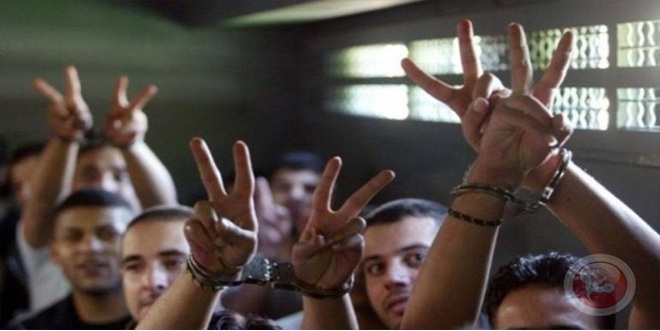1,200 Palestinian prisoners are preparing to start an open-ended hunger strike on the evening of September 1st’in order to reject the continuous violations and crimes of the Israeli occupation against them, within an integrated struggle program in which all prisoners participate in stages to force the occupation to stop its violations.
The prisoners’ strike comes a day after the prisoner Khalil Awawda’s victory in the Battle of the Empty Bowel, which lasted for about six months.
During these six months, Awawda did not taste food, to force the occupation to respond to his demands for his release, so he would embrace freedom on the second of next October.
The Palestinian Prisoners Club’s spokesman, Amjad Al-Najjar, explained that 1,200 prisoners will start their strike this evening in the first phase of the Battle of Glory and Dignity, which the Supreme Emergency Committee of the captive movement announced that it will be in integrated stages of struggle to force the occupation to stop its arbitrary practices.
The spokesman for the Muhajat al-Quds Foundation for Martyrs and Prisoners Muhammad al-Shaqaqi indicated that the intifada inside the occupation prisons will not stop until the prisoners defeat the Israeli jailers.
He added that a series of mass activities in support of the struggle and sacrifices of the prisoners will continue in the besieged Gaza Strip and the West Bank to support the prisoners and draw the world’s attention to their aggravating and dangerous suffering.
He pointed out that the victory of the prisoner Khalil Awawda after a long battle of the strike is a message to the occupation and the world that it is not possible to undermine the determination of the prisoners, their strength of will and their struggle to extract their basic rights.
Mowaffaq Hamid, director of the Prisoners Foundation, called to internationalize the issue of prisoners and mobilize all energies to advocate for them and support them in all international forums.
Palestine’s permanent representative to the United Nations, Riyad Mansour, explained in three letters to the Secretary-General of the United Nations, the President of the Security Council and the President of the United Nations General Assembly the difficult conditions experienced by thousands of Palestinian prisoners in the occupation’s prisons.
He stressed the need for UN institutions to assume their responsibilities and the need to implement the rules of international law, including the Fourth Geneva Convention obligating the occupation authorities to release all prisoners and put an end to the occupation and the apartheid regime.
- al-Mohammad

